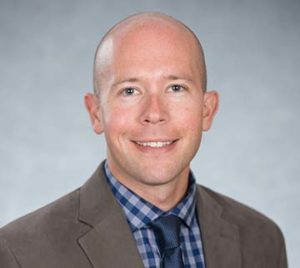
Readings
First Reading: Isaiah 58: 7-10
Responsorial Psalm 112: 4-5, 6-7, 8-9
Second Reading: 1 Corinthians 2: 1-5
Gospel: Matthew 5: 13-16
For many modern hearers, Jesus’s description of his disciples as “salt of the earth” strikes the ear as referring to a helpful, perhaps even delicious, mineral used for cooking that is entirely optional. In fact, given increasing health consciousness, some might even see salt as a problematic or even dangerous metaphor. When viewed through this skeptical lens, it can appear to some that Jesus is suggesting that what his disciples offer the world is an optional “flavor booster” or a “taste enhancer.” As if our presence would make things better.
But as a long-distance runner, I have found myself hearing the opening words in today’s Gospel passage differently over the years. About a decade ago I was running a 15k road race and doing so at a competitive pace. Everything seemed to be going fine until I was less than a kilometer from the finish line and I blacked out, collapsed, and woke up briefly in a medical tent before passing out again and waking in the emergency room. Though I didn’t know it yet, what happened to me was the consequence of not having enough electrolytes and fluids in my system, a consequence of unseasonably hot weather the week before the race that slowly depleted most of my reserves.
At the hospital, doctors were concerned the incident might have damaged my heart or other organs (fortunately, I was relatively unscathed for the long term), all because certain minerals and fluids were not adequately present in my body. The heat, the competitive running, and my own inability to recognize possible warning signs—this combination led my body to shut down in order to save my life. Without sodium, magnesium, potassium, and other electrolytes, the brain can’t function and the heart can’t pump blood. Without those key elements, the body shuts down and collapses.
What I realized that day and have carried with me ever since is that salt is absolutely essential for human life and bodily flourishing.
Likewise, to be “salt of the earth” as Jesus’s disciples is also absolutely essential for the life and flourishing of the body of Christ!
This shift in perspective changes the meaning of the Gospel for us today. The Body of Christ needs its discipleship electrolytes, needs you and me in order to function for the life and flourishing of Christ’s presence in the world. And it doesn’t take a specialist or a religious “professional” to fulfill Christ’s call to be such spiritual salt. This is part of St. Paul’s message in our second reading.
Paul presents us with a model for thinking about what is necessary to be an apostle—one sent to proclaim the good news of Jesus Christ—namely, accepting the spirit and sharing the faith that has been handed on to us. He reminds us that one can be weak and fearful and inarticulate according to the wisdom of the world. These are no requisite qualifications or stellar skills necessary to be a disciple. This is also something Pope Francis has reiterated in his Apostolic Exhortation Evangelii Gaudium:
Every Christian is challenged, here and now, to be actively engaged in evangelization; indeed, anyone who has truly experienced God’s saving love does not need much time or lengthy training to go out and proclaim that love. Every Christian is a missionary to the extent that he or she has encountered the love of God in Christ Jesus: we no longer say that we are “disciples” and “missionaries,” but rather that we are always “missionary disciples” (no. 120).
Rather than sit back and leave the task of evangelization—of being salt and light—to others, we are instructed to rely on the power of God in the proclamation of our faith by word and deed wherever we find ourselves.
If we’re looking for examples of how to be salt of the earth and light for the world, we only have to turn to our first reading from the Book of the Prophet Isaiah. We hear a reminder that we should feed the hungry, shelter the homeless, clothe the naked, satisfy the afflicted and in doing so our “light shall break forth like the dawn.”
In our world when so much polarization has gripped the church and beyond, perhaps one way we can think about the discord and pain is as metaphorical cramps in the Body of Christ due to lack of sufficient “salt of the earth.” The remedy is simple, but the responsibility is ours: it is up to us to provide the missionary discipleship Christ calls us to live, and in turn, become the necessary salt and light the world needs today.
Rev. Daniel P. Horan, OFM
Assistant Professor of Systematic Theology and Spirituality